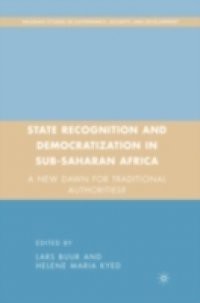State Recognition and Democractization in Sub-Saharan Africa explores the link between liberal-style democratization and state recognition of traditional authority in Sub-Saharan Africa. Being critical and empirically grounded, the book explores the complex, often counter-balancing consequences of the involvement of traditional authority in the wave of democratization and liberal-style state-building that has rolled over sub-Saharan Africa in the past decade. It scrutinizes how, in practice, traditional leaders are being drawn into governance in Mozambique, Zambia, Namibia, Malawi, Burkina Faso, and the Somali region of Ethiopia, and relates these developments to state governance in the declining democracy of Zimbabwe and the emerging state of Northern Somalia.

